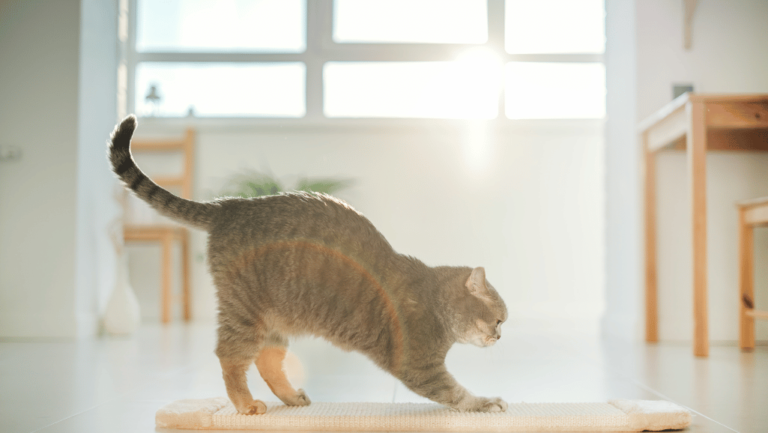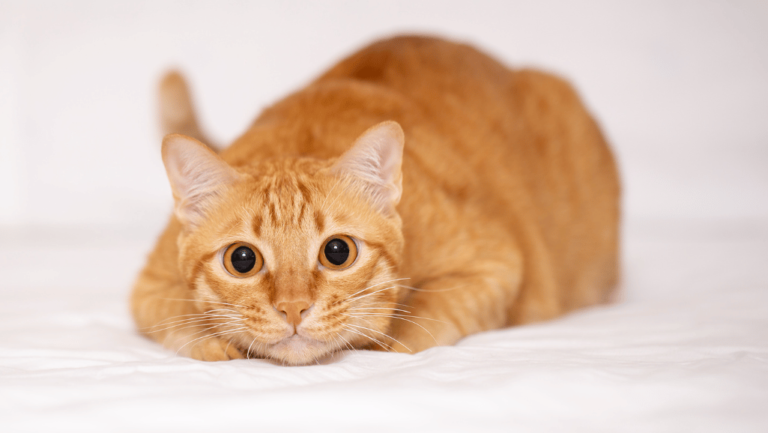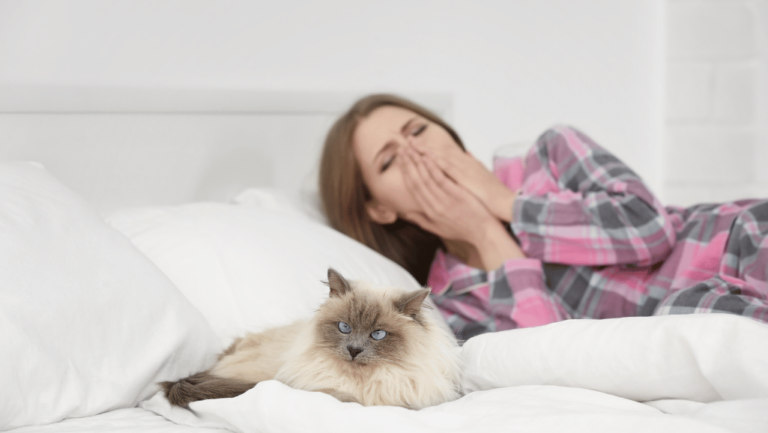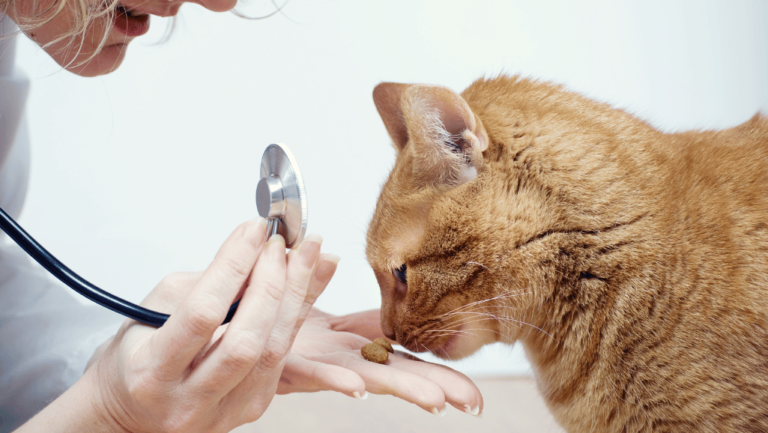Introduction
The Arabian Mau, a breed native to the desert climes of the Arabian Peninsula, is renowned for its elegance, athleticism, and companionable nature. This review takes you through a journey about these fascinating felines, highlighting their history, unique physical features, grooming requirements, activity level, health profile, charming personality, training potential, weights, estimated lifespan, favorite foods, and more. Despite any minor drawbacks, we believe that the Arabian Mau is a uniquely wonderful cat breed that can bring joy and companionship to any household.
History of the Arabian Mau Cats
The Arabian Mau is a natural breed that originated from the desert cats of the Arabian Peninsula. For centuries, they thrived in the harsh desert conditions, adapting and evolving into a robust breed known for their resilience and resourcefulness. The modern Arabian Mau is a tribute to their desert-dwelling ancestors, retaining much of their physical and behavioral characteristics. Recognized officially by the World Cat Federation in 2008, the Arabian Mau has gradually gained international recognition and appreciation for its distinctive traits and natural charm.
Size and Appearance

The Arabian Mau is a medium-sized cat, with males typically larger than females. They boast a well-muscled and firm body with a noticeable rectangular shape. Their legs are proportionately long, ending in round, firm paws. The tail is medium in length and tapers towards the end.
Their coat is short and lies close to the body, coming in a variety of colors and patterns, from pure white to black, and everything in between, including tabby and tortoiseshell patterns. Their eyes are large and expressive, with color ranging from green to amber. Ears are wide-set and large, a trait that accentuates their alert and perceptive demeanor.
Grooming Needs
Arabian Maus are relatively low maintenance when it comes to grooming. Their short, dense coat sheds minimally and only requires weekly brushing to remove loose hairs and distribute natural oils. Bathing is rarely necessary unless the cat gets into something messy. Regular teeth brushing, nail trimming, and ear cleaning should be part of the routine to ensure the Mau’s overall health and hygiene.
Activity Level
As descendants of desert cats, Arabian Maus are energetic, agile, and playful. They love to explore their surroundings and will often engage in games of chase, fetch, and hide-and-seek. They are equally comfortable with heights and will not hesitate to scale bookcases or cat towers. Providing them with plenty of toys and playtime will keep these active felines stimulated and happy.
Health Profile
Thanks to their natural heritage, Arabian Maus are generally robust cats with few breed-specific health issues. They have developed into a healthy breed that enjoys an active lifestyle. Regular veterinary check-ups are essential to catch potential health problems early. Obesity can be a concern if their diet is not managed properly or they do not receive adequate exercise, which leads us to the importance of their diet and physical activity.
Personality Traits
Arabian Maus are known for their affectionate and sociable personality. They enjoy the company of their human family and are known to follow their owners from room to room, always wanting to be part of the action. Despite their love for people, they are not overly demanding and can entertain themselves when left alone. They are generally friendly towards other pets, but their territorial instinct can sometimes surface, especially around unfamiliar cats.
Training Tips
These intelligent cats are quite trainable, given their curiosity and eagerness to engage. They can learn commands, tricks, and even agility training, given the right motivation and positive reinforcement techniques. Starting training from a young age and keeping it consistent will help your Arabian Mau pick up commands and tricks with ease.
Typical Weights
Male Arabian Maus typically weigh between 8-16 pounds, while females tend to be slightly lighter, weighing between 6-14 pounds. Keep in mind that these are averages, and individual cats may vary based on their diet, activity level, and individual genetic factors.
Estimated Lifespan
The Arabian Mau is a long-lived breed, with many cats reaching the age of 15 or more. Their lifespan is a testament to their robust health and adaptability, with some cats even living into their early twenties with good care
Favourite Foods
Like most cats, Arabian Maus enjoy a diet that’s high in protein. They do well on high-quality commercial cat food, but they also appreciate the occasional treat of cooked chicken, fish, or turkey. Remember, treats should make up no more than 10% of their total diet. Always ensure they have access to fresh water, especially given their desert ancestry.
The Endearing Qualities of the Arabian Mau
Despite their many positive qualities, Arabian Maus have two characteristics that potential owners should consider. Their high activity level may not be suitable for someone looking for a laid-back lap cat. They are also somewhat vocal and may call out if they feel neglected or bored. However, these qualities also make them great companions for those who appreciate an energetic, interactive pet.
Two Concerns about Arabian Mau Cats
While the Arabian Mau is a wonderful breed, there are a couple of potential challenges prospective owners should be aware of.
The first is their activity level. Arabian Maus are active, curious, and enjoy keeping themselves occupied. This means they need plenty of stimulation, both mental and physical. A bored Arabian Mau might resort to mischief, such as climbing curtains or knocking things off shelves. Therefore, they may not be suitable for individuals or families who are away from home for long periods and can’t provide the play and interaction these cats crave.
The second concern is their vocal nature. Arabian Maus are known for their communication skills, and they will not hesitate to voice their displeasure or demand attention. While this trait is charming to many, it might prove a bit too much for those seeking a quiet pet.
However, it’s essential to remember that these potential issues can be managed with proper care, understanding, and adjustment of expectations. As with any pet, owning an Arabian Mau is about building a mutual bond of respect and love, and the rewards they offer far outweigh the challenges.
Unique Appearance
The Arabian Mau is a study in elegance and athletic grace. Their medium size, robust muscular structure, and firm body give them a striking presence. Their legs are longer compared to their body, which lends them an agile, nimble appearance. This agility is not just for show – these cats are fantastic climbers and jumpers.
Their coat is short but dense, providing just enough protection from the elements while highlighting their muscular physique. The variety of colors and patterns adds to their visual appeal, from solid black or white to a beautiful blend of tabby or tortoiseshell patterns.
One of the most captivating features of an Arabian Mau is their expressive eyes. Large, almond-shaped, and radiant, their eyes range from brilliant green to golden amber. Their wide-set, large ears further accentuate their alert and attentive appearance.
Engaging Personality
The personality of an Arabian Mau is an engaging combination of independence and sociability. These cats are known for their playful, curious, and affectionate demeanor. While they are quite capable of entertaining themselves, they relish human interaction and are not shy about expressing their affection.
Their intelligence is apparent in their quick learning of routines and their ability to problem-solve. Whether it’s figuring out how to open a door or learning to fetch a toy, the Arabian Mau’s mental agility is continually on display.
Despite their independent streak, they are far from aloof. They enjoy being in the same room as their human family, often curling up next to them or on a nearby perch. When they’re not busy exploring or playing, they might surprise you with their sudden bouts of lap-cat tendencies, seeking out cuddles and strokes.
Frequently Asked Questions
Here we answer some of the most common questions about these popular cat breeds, their characteristics, and what potential owners can expect.
Yes, Arabian Maus are generally sociable and can get along well with children and other pets. However, introductions should be made slowly and under supervision.
No cat breed is truly hypoallergenic, including Arabian Maus. However, their short coats do shed less than some other breeds.
Arabian Maus should be fed a balanced diet twice a day, but this can vary depending on the cat’s age, health, and your vet’s advice. They should be provided with toys and scratching posts to keep them entertained.
Yes, they can adapt to apartment living as long as they have enough space to play and explore.
While they are independent and can entertain themselves, Arabian Maus enjoy interacting with their human family members. They thrive on attention and affection, but they are not overly demanding.

















